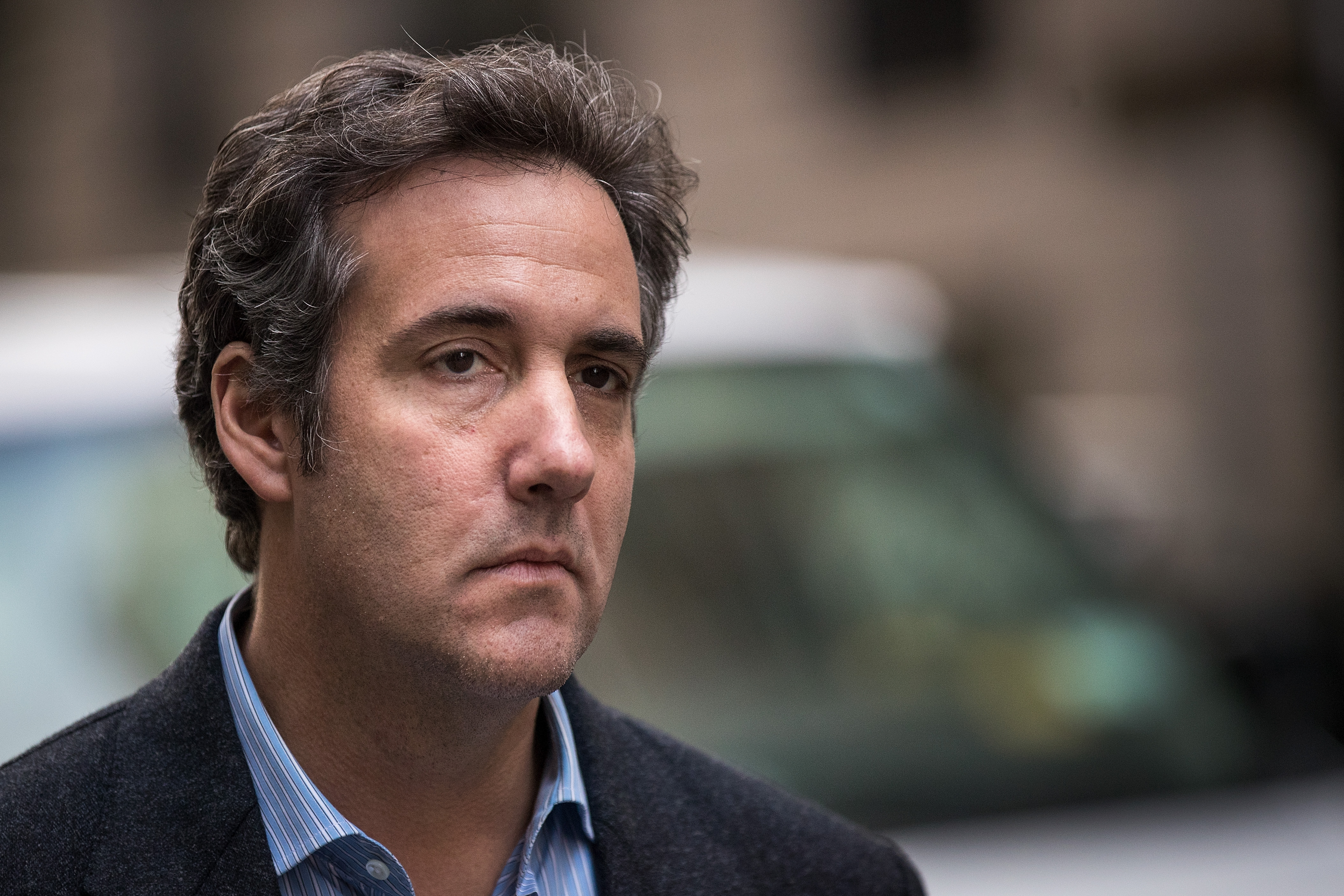Michael Cohen's lucrative access-peddling mostly backfired, apparently


A free daily email with the biggest news stories of the day – and the best features from TheWeek.com
You are now subscribed
Your newsletter sign-up was successful
Very few parties involved in Michael Cohen's efforts to profit off his relationship to President Trump seem to be satisfied with the arrangement. Cohen told associates he felt he was underpaid by law firm Squire Patton Boggs, which gave him $500,000 a year plus office space in New York and a cut of any fees from clients he referred, The Wall Street Journal reports, and his work for other clients and prospective clients "dragged some of the world's largest corporations and other firms into Special Counsel Robert Mueller's investigation."
AT&T and Novartis shared information with Mueller's office about their agreements with Cohen and Ford provided information about Cohen's unsuccessful pitch to decipher Trump's inner circle, the Journal says. "More fortunate are the dozens of Fortune 100 companies who ... said they hadn't received any overtures from Mr. Cohen or had any contact with him." Along with Ford, Uber said it turned down Cohen's overtures.
Last week, AT&T ousted Bob Quinn, a senior vice president involved in paying Cohen $600,000 last year, and called the deal "a big mistake" and a "serious misjudgment." Novartis quickly determined that its $50,000-a-month contract with Cohen was useless but kept paying him so as not to anger Trump, a Novartis employee told Stat News.
The Week
Escape your echo chamber. Get the facts behind the news, plus analysis from multiple perspectives.

Sign up for The Week's Free Newsletters
From our morning news briefing to a weekly Good News Newsletter, get the best of The Week delivered directly to your inbox.
From our morning news briefing to a weekly Good News Newsletter, get the best of The Week delivered directly to your inbox.
Cohen had big plans after Trump's election, partly spurred by heavy losses in his taxi medallion business that left his upscale Manhattan lifestyle on what a friend called "precarious" footing, the Journal reports. After it became clear Trump wouldn't install him in the White House, Cohen began telling friends and associates that he was "going to build up a huge practice," one associate told the Journal. By last winter, Cohen was complaining to friends that Trump was "not calling him and not helping him," the Journal says, and by March he was considering whether he should quit as Trump's personal lawyer. You can read more about Cohen's hit-and-miss 2017 at The Wall Street Journal.
A free daily email with the biggest news stories of the day – and the best features from TheWeek.com
Peter has worked as a news and culture writer and editor at The Week since the site's launch in 2008. He covers politics, world affairs, religion and cultural currents. His journalism career began as a copy editor at a financial newswire and has included editorial positions at The New York Times Magazine, Facts on File, and Oregon State University.
-
 Political cartoons for February 16
Political cartoons for February 16Cartoons Monday’s political cartoons include President's Day, a valentine from the Epstein files, and more
-
 Regent Hong Kong: a tranquil haven with a prime waterfront spot
Regent Hong Kong: a tranquil haven with a prime waterfront spotThe Week Recommends The trendy hotel recently underwent an extensive two-year revamp
-
 The problem with diagnosing profound autism
The problem with diagnosing profound autismThe Explainer Experts are reconsidering the idea of autism as a spectrum, which could impact diagnoses and policy making for the condition
-
 Nobody seems surprised Wagner's Prigozhin died under suspicious circumstances
Nobody seems surprised Wagner's Prigozhin died under suspicious circumstancesSpeed Read
-
 Western mountain climbers allegedly left Pakistani porter to die on K2
Western mountain climbers allegedly left Pakistani porter to die on K2Speed Read
-
 'Circular saw blades' divide controversial Rio Grande buoys installed by Texas governor
'Circular saw blades' divide controversial Rio Grande buoys installed by Texas governorSpeed Read
-
 Los Angeles city workers stage 1-day walkout over labor conditions
Los Angeles city workers stage 1-day walkout over labor conditionsSpeed Read
-
 Mega Millions jackpot climbs to an estimated $1.55 billion
Mega Millions jackpot climbs to an estimated $1.55 billionSpeed Read
-
 Bangladesh dealing with worst dengue fever outbreak on record
Bangladesh dealing with worst dengue fever outbreak on recordSpeed Read
-
 Glacial outburst flooding in Juneau destroys homes
Glacial outburst flooding in Juneau destroys homesSpeed Read
-
 Scotland seeking 'monster hunters' to search for fabled Loch Ness creature
Scotland seeking 'monster hunters' to search for fabled Loch Ness creatureSpeed Read
